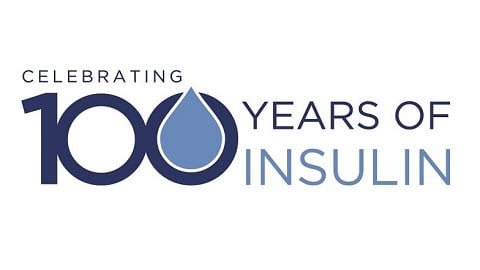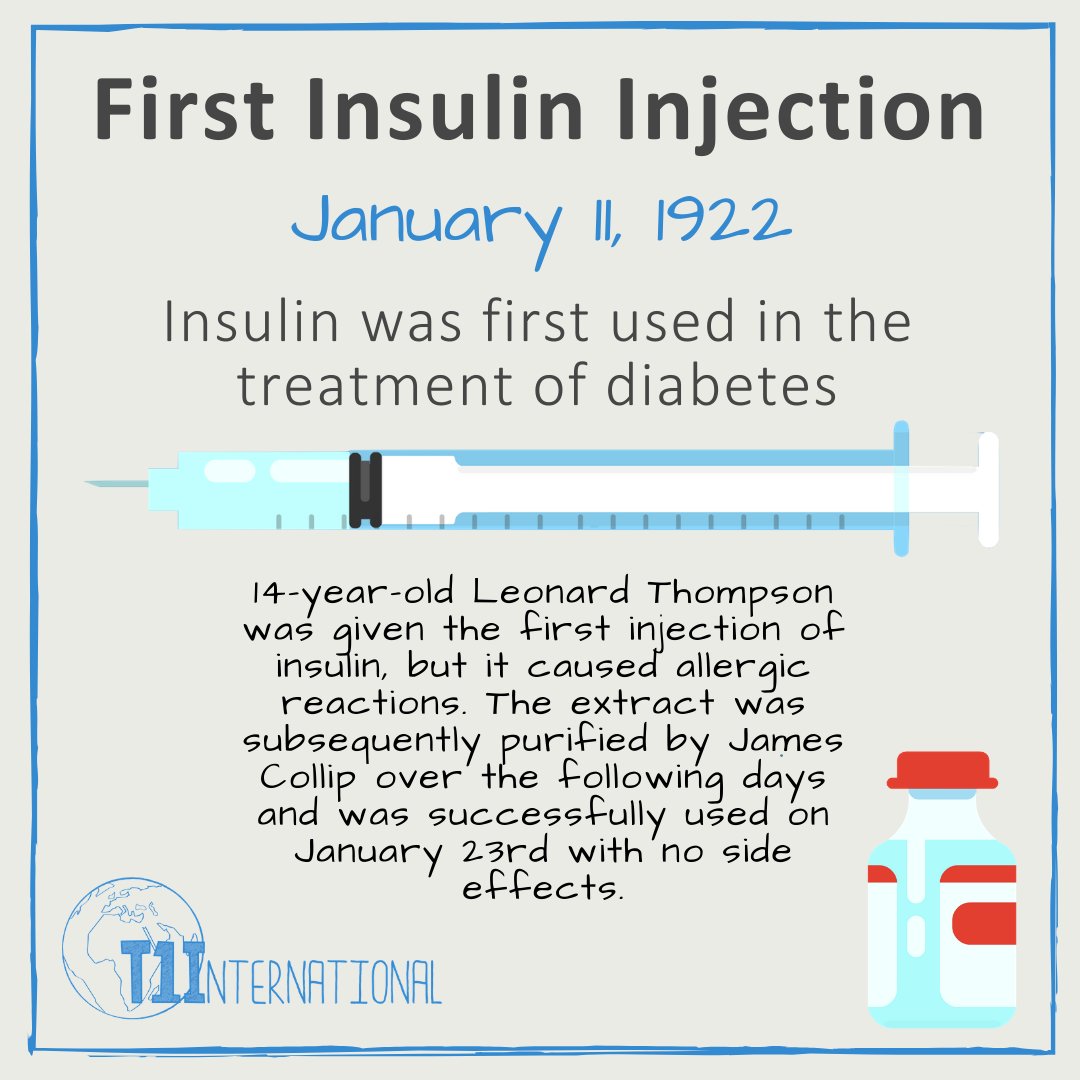
The following sentence stood out when I read National Day Calendar's entry for World Diabetes Day: "World Diabetes Day is held on November 14th each year to commemorate the birthday of Sir Frederick Banting who co-discovered insulin in 1922." Strictly speaking, that isn't really true, as Banting discovered insulin in 1921, but, as the following image points out, 1922 marks the first use of insulin to treat diabetes.

A centennial of an event with personal significance! Not only am I an insulin-dependent diabetic, but I read the story of the discovery of insulin in junior high school and wrote a report on it for health class. That was fifty years ago, so I could use a refresher. I could have used any of several videos, but I chose 100 years of insulin use: How it was discovered and where we stand today from Down To Earth because it covered the topic well and had the video description that emphasized the anniversary.
On January 11 1922, 14-year-old Leonard Thompson became the first type I diabetes patient to receive a shot of insulin. While there were some complications after the first shot, the second shot was administered almost a fortnight later, on January 23, 1922. It was a roaring success and gave hope to many Type I diabetes patients across the world. And thus the story of Insulin began.I retained some of this story, but I definitely needed a refresher about the contributions of Mcleod, Collip, and Charles Best. It's a good day when I learn something new, or at least was reminded of something I may have forgotten. I hope my readers learned something, too.
Back in the 19th century, those suffering from type I diabetes were rarely expected to live longer than a year or two after detection.
In November 1920, Frederick Banting, a Canadian surgeon, and Professor John Macleod from the University of Toronto started working to extract insulin from the pancreas. In December 1921 that year, a biochemist named James Collip joined the trio to help purify insulin, so as to make it safe enough for testing on humans. And the following month, Thompson was administered the first dose.
Insulin was the greatest medical breakthrough of the 20th century and remains the go-to treatment for type I diabetes. Banting and Macleod went on to win the Nobel Prize in Physiology or Medicine on October 25, 1923. But even though insulin was a revolutionary medical advancement at that point in time, 100 years later, Diabetes continues to be a leading cause of death. Globally 15 out 100,000 people suffer from type I diabetes with a 9.5 per cent prevalence, according to a study published in National Center for Biotechnology Information (NCBI) in March 2020. And as for insulin, the once miracle drug still continues to be a wealthy affair as most of the economically poor nations struggle to get their hands on this go-to diabetes drug. Although new advancements like oral insulin and glucose-sensitive insulins are making headlines, what we need, is to ensure this medicine can be available, accessible, affordable for all 100 years after it was formulated.
Stay tuned for more about holidays as I plan on celebrating America Recycles Day tomorrow.
No comments:
Post a Comment